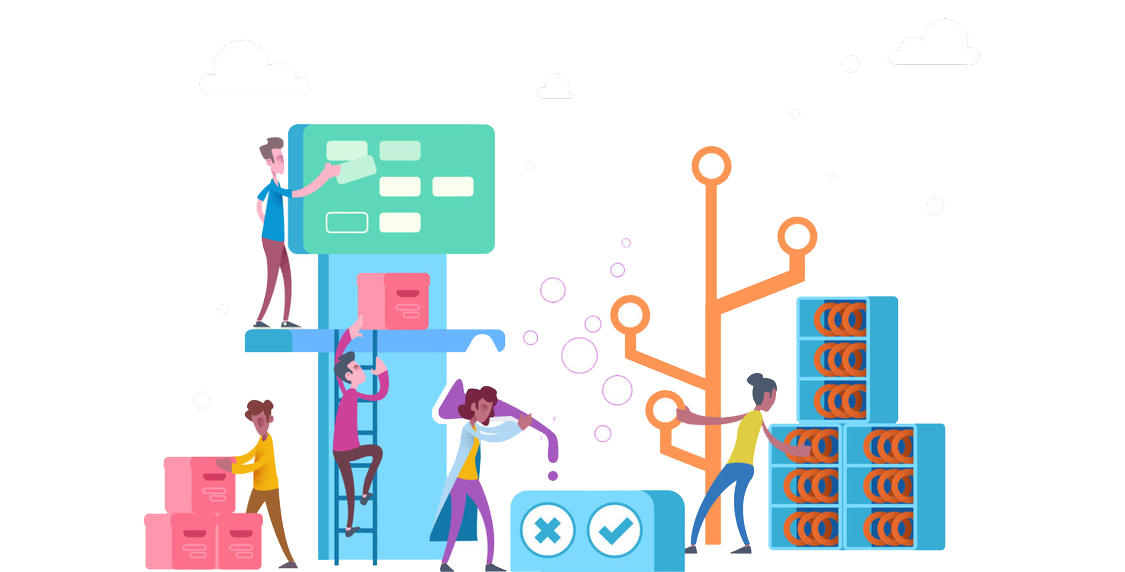Thriving in the rapidly evolving realm of technology demands staying ahead of the game. Microsoft Azure, a leading cloud-computing platform, recognizes this ever-changing landscape and is dedicated to delivering state-of-the-art solutions. Azure Lab Services, a powerful platform offered by Microsoft Azure, provides users with the ability to create, manage, and distribute virtualized labs for educational, training, and experimental purposes. It is an exceptional offering that allows users to unlock their creativity and accelerate learning in a cloud-powered world.
As we progress into 2023, Azure Lab Services has undergone notable updates, equipping users with enriched features and expanded capabilities. In this blog, we will delve into the thrilling advancements introduced to Azure Lab Services in 2023, exploring their potential implications.

Azure Labs Overview
Created by Microsoft, Azure Labs is a cloud-based computer lab that allows schools and other organizations to run programs on preconfigured virtual machines. This means that instead of having students come into a traditional computer lab with the programs downloaded on desktops, the program itself is held in the Azure cloud and accessed through virtual machines set up for each individual student. When students log in, they can access as many labs as they are enrolled in and can connect and start working from anywhere without their own Azure subscription.
Microsoft Azure Lab Services is a tool that enables on-demand access to pre-configured virtual machines that are managed by Microsoft Azure. These virtual machines are hosted in the Azure cloud and create a new computer within this virtual environment.
Your organization can create virtual machine templates using the robust software or platforms required for your organization's business needs and run them through the cloud using Azure Lab Services. Additionally, you can host your organization's frequently used software that can allow you to run professional training, on-demand demos, host hackathon events, and even create machines to test environments for developers.
Once you define your needs, you can deploy Azure Lab Services to create virtual machines for invited users. These can be deployed quickly and can be easily scalable to provide ease-of-use for your organization.

New Updates 2023
Lab Plans Replace Lab Accounts
In the latest version of Lab Services, Microsoft has introduced a new concept called a lab plan, replacing the traditional lab account. This update is effective as of February 21st, 2023. The lab plan acts as a comprehensive compilation of configurations and settings that are applicable to the labs derived from it. While the functionality remains similar, there are some notable differences between the old lab account and the new lab plan.
Furthermore, labs now exist as independent Azure resources and are considered sibling resources alongside lab plans. Rather than a parental relationship between lab accounts and labs, the lab plan establishes a sibling relationship with labs, resulting in an upgraded and improved experience. To better understand these changes, refer to the comparison table, which highlights the differences between the previous lab account experience and the enhanced lab plan experience.
Furthermore, labs now exist as independent Azure resources and are considered sibling resources alongside lab plans.
Improved User Experience
Azure Labs Services has undergone a substantial overhaul to enhance the user experience. Microsoft has focused on streamlining the platform's navigation and introducing a more intuitive interface. The updated dashboard offers a simplified workflow, allowing users to create, manage, and monitor their virtual labs effortlessly. Additionally, improved customization options allow users to tailor their own lab environments according to specific requirements. This facilitates a personalized learning or training experience.
More Built-in Roles
Previously, Azure Lab Services only had the Lab Creator built-in role. However, we have now introduced additional roles to enhance the user experience. These new roles include Lab Operator and Lab Assistant. Lab operators have the ability to manage existing labs, while lab assistants can assist students by starting, stopping, or redeploying virtual machines. Lab assistants, however, do not have the authority to adjust quota or set schedules.
Integration with Azure DevOps
Recognizing the growing importance of DevOps practices, Azure Lab Services now seamlessly integrates with Azure DevOps. This integration empowers development teams to leverage the power of virtual labs within their CI/CD pipelines. With just a few clicks, developers can automate the creation and teardown of lab environments, ensuring consistent and reliable testing throughout the development lifecycle. This integration strengthens the bond between development and operations teams, promoting collaboration and accelerating software delivery.
Expanded Lab Templates
To cater to diverse learning and training needs, Azure Labs Services has expanded its collection of lab templates. The updated templates cover a wide range of domains, including software development, data analytics, artificial intelligence, and cybersecurity. Users can select from a vast repository of pre-configured lab environments, reducing setup time and enabling faster access to hands-on learning experiences. Whether its practicing coding exercises, analyzing big data, or exploring machine learning models, the expanded lab templates offer a wealth of options for users to explore.
Enhanced Collaboration Features
Collaboration lies at the heart of effective learning and training experiences. Azure Labs Services now offers improved collaboration features, allowing users to invite others to join their virtual labs. This feature is particularly beneficial for educators and trainers who can effortlessly share lab environments with students or participants, fostering a collaborative learning environment. Furthermore, real-time collaboration tools enable seamless communication and interaction between lab participants, promoting knowledge sharing and teamwork.
Advanced Monitoring and Analytics
Understanding the usage and performance of virtual labs is critical for optimization and resource allocation. Azure Labs Services now provides advanced monitoring and analytics capabilities, allowing users to gain insights into lab utilization, resource consumption, and performance metrics. With these valuable analytics, users can identify bottlenecks, optimize resource allocation, and make informed decisions to enhance the overall lab experience. Additionally, administrators gain better visibility into lab activities, ensuring compliance and security within the lab environment.
![]()
Conclusion
The 2023 updates to Azure Lab Services have elevated the platform's capabilities, empowering users with enhanced features and functionalities. From an improved user experience and seamless integration with Azure DevOps to expanded lab templates and advanced collaboration features, Azure Lab Services has evolved into a comprehensive and robust solution for teaching, training, and experimentation.
These updates reflect Microsoft's commitment to innovation and meeting the evolving needs of its users. As we embrace the future of technology, Azure Lab Services stands as a powerful tool to unlock creativity, accelerate learning, and unleash innovation in a cloud-powered world.
Get Started with Azure Labs
Microsoft Azure Labs can be an incredibly useful tool for organizations that utilize robust software. With the rise of remote and hybrid work models, Azure Labs offers employees unparalleled flexibility while also delivering cost-saving advantages for organizations. By adopting a pay-as-you-go structure, wastage is minimized as resources are only consumed when needed.
Additionally, the platform provides budget management tools and the ability to set user time limits, ensuring optimal resource allocation and control. The Azure Labs integration within Microsoft Teams can help centralize team collaboration and communication.
To begin your organization's journey with Microsoft Azure Labs at no cost, contact Datalink Networks for your complimentary setup and trial experience.




